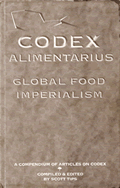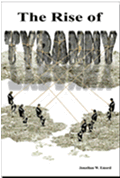THANK YOU, PRESIDENT REAGAN
By
Attorney Jonathan Emord
Author of "The Rise of Tyranny"
and
"Global Censorship of Health
Information" and
"Restore The Republic"
April 8, 2013
NewsWithViews.com
North Korean Dictator Kim Jong-un has whipped the nation’s military, representing a force equal to 20% of the working age population of the nation, into a war lather. His people think war with the West has begun. At least three internal pressures help us understand why Dictator Jong-un is sounding increasingly bellicose. He is endeavoring to combat suspicions about his inexperience as dictator, to solidify his control over and his support within the North Korean People’s Army, and to diminish focus on wide-spread malnutrition and civil rights abuses by the regime.
Self-preservation is a powerful motivation for any dictator, for a young one who is perceived as immature and weak the need to prove otherwise can lead to extreme actions, such as attacks on South Korea or even on American military. While a nuclear attack on the United States is threatened, it is unlikely. Nevertheless, if push comes to shove and Jong-un is at risk of being deposed, he could take down the entire nation with him through a “heroic” attack on part of the United States (indeed, perceptions of that possibility within his regime help deter challenges to his leadership). Were it not for President Reagan’s commitment, made on March 23, 1983, to build an extensive anti-missile defense system, we would not be in as strong a position as we are today to ensure that Dictator Jong-un’s rhetoric avoids becoming reality.
The North Korean People’s Army consists of about 20% of all men 17 to 54. That is the highest percentage of military personnel per capita of any nation in the world. There is one North Korean People’s Army soldier for every 25 citizens in the country. The army represents one of the few sources of secure employment and food that exists in this economically ruined communist state. Within North Korea considerable prestige attends association with the People’s Army. The army is the largest, most powerful constituency within the state and no dictator of the country can remain in power unless its ranks are not merely satisfied but convinced that the leader, who is the military commander, has the wherewithal to protect the army’s interests and advance the country’s goals of retaking South Korea and diminishing U.S. power and influence. Signs of weakness or a lack of resolve in advancing those interests and goals would invite a coup d’etat.
Dictator Jong-on, like his father, former North Korean dictator Kim Jong-il, maintains a highly oppressive regime that ferrets out, arrests, incarcerates, and executes any who dissent from the demands of the state or show what could be perceived as signs of disloyalty. North Korea maintains one of the largest networks of political prison camps in the world and subjects prisoners to torture and to brutal and often lethal work details. Defectors are killed. Political prisoners are publicly executed. Those who refuse State demands are assigned to reeducation and work camps, many times never returning to their families.
A country with no sound economic infrastructure, communist North Korea suffers from perpetual food shortages that endanger the lives of more than a million people within the country annually. This year the country is perceived to be about one month short of requisite food stuffs, generating social unrest that can lead to political upheaval.
Jong-un cannot alleviate the food shortages without capitulating to Western demands. If he capitulates to Western demands he will immediately cause the nation’s military leaders to suspect that he is weak. If he lessens his crackdown on dissidents and critics of the regime, he likewise increases the chance that there will be assassination attempts or even a coup d’etat. Consequently, he has chosen to solidify his position as military leader and refocus national attention on xenophobia, condemning the South and the U.S. for North Korea’s woes and declaring war against both. He then causes the military to view him as a functioning commander and reduces internal attention on politically driven murder and continuing food shortages.
Moreover, the West is keenly aware that North Korea’s bad behavior is often used as an inducement for the start of negotiations which have frequently resulted in an outpouring of aid and other concessions in exchange for North Korean promises (always broken) to end their domestic nuclear program and reduce hostilities with the South. The present political and economic climate in the West makes it more difficult for North Korea to achieve the concessions it needs, so it is logical in a sick sort of way for Jong-un to up the ante by becoming more obnoxious and belligerent.
This time, however, he has exceeded international expectations by passing points that even his father’s regime did not pass. Jong-un has threatened pre-emptive nuclear strikes, severed North Korean’s agreement to honor the 1953 Korean War armistice, discontinued hotline connections with the South, restarted the Yongbyon nuclear reactor to create more weapons grade plutonium, and moved a mobile nuclear missile launcher to the country’s East coast capable of striking targets in South Korea and Japan. That causes Western governments, and even North Korean ally Communist China, to view him as unstable. The long term consequences of his current gamble are likely disadvantageous for his regime, because rather than return to the bargaining table with aid in hand, the West is likely to support greater military build-up in the region, greater support for South Korea, greater activation and readiness of the South East Asian Treaty Organization, and greater pressure on China to reign in the dictator.
We can thank President Ronald Reagan for having the foresight to demand in the early 80’s, against severe criticism from liberal members of Congress, that the United States undertake an ambitious program of missile defense. That initiative has culminated in the development of sophisticated anti-intercontinental ballistic missile systems that can largely neutralize any nuclear threat the North Koreans could mount. Indeed, as the North Koreans well know, if they arm missiles with nuclear warheads and ready them for launch, it is likely that the United States would strike those targets even before the missiles leave the ground. If a launch succeeded, it is very likely that counter measures will result in the destruction of the rocket before it hits a target in the United States. If a nuclear warhead hits South Korea or the United States, it is very likely that the United States will obliterate Pyongyang within fifteen minutes of the launch.
| Subscribe to the NewsWithViews Daily News Alerts! |
Because North Korea is aware of the real risks, it is unlikely to resort to a pre-emptive nuclear attack, but it has used and will continue to use conventional weapons and acts of terror against South Korea as part of a continuing mini-war of sorts. Likely this time Jong-un’s domestic rhetoric will put him in the position of having to prove his mettle by striking the South again or even American forces in the region. He has backed himself into a corner. His rhetoric is so bellicose that some action must be taken. He must act to prove he is “in charge” and willing to do whatever is necessary to protect the army’s interests and advance the country’s goals of retaking South Korean and diminishing U.S. power and influence. Indeed, given his extremely bellicose rhetoric, if Jong-un fails to strike, he will be viewed as weak from inside and outside of his country.
As with Nikita Khruschev, backing down from threat of war engenders dissent within the communist party that can threaten a dictator’s survival. In Jong-un’s case, he cannot afford to lose face in front of the army and the party by eating his words in the same way that Khruschev did, so he must act militarily even at the risk of a retaliatory strike from South Korea and the United States.
Click here to visit NewsWithViews.com home page.











 Share
This Article
Share
This Article







